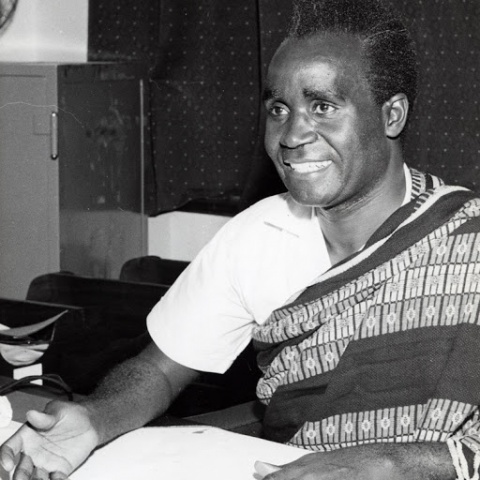TODAY, Zambia celebrates Dr. Kenneth David Kaunda Day — a day set aside to honour the birth and enduring legacy of Zambia’s founding father, a great Pan-Africanist, a freedom fighter, and a visionary leader whose humility and dedication gave birth to not just a free Zambia, but also contributed to the liberation of Southern Africa as a whole.
It is not just another public holiday. It is a solemn reminder of the values that birthed this nation: selflessness, sacrifice, patriotism, and service to humanity. It is a call to reflection, not only on where we have come from, but also on where we are headed as a country. KK was not a perfect man. No leader is. But in an era where greed, corruption, and the hunger for power dominate political life, Kaunda’s legacy stands out as a beacon of integrity and humility.
Here was a man who ruled Zambia for 27 years, presiding over the birth of an independent nation, navigating through global Cold War politics, and dedicating Zambia’s resources to the liberation of other African nations — often at great economic cost to his own people. Yet, when he left office, he was not a rich man. He did not loot state coffers. He did not hide billions in offshore accounts. He did not build lavish mansions for himself or his children.
In fact, when you see his children today, you would hardly believe their father once ruled a country for nearly three decades. They are ordinary citizens, struggling through life like everyone else, without the excessive privilege that political dynasties often enjoy elsewhere. To appreciate this, one simply has to look around among our neighbouring countries and see how much wealth KK’s counterparts accumulated for themselves and their children.
That is the hallmark of true leadership. KK selflessness was not an act. It was not a public relations stunt. It was the core of who he was. He lived modestly, he carried himself with dignity, and he considered himself a servant of the people, not their master. His simple life after politics — refusing to enrich himself from the nation he helped liberate — speaks volumes about the character that defined him.
As we mark his birthday, we must ask ourselves: what lessons can Zambia’s current and future leaders learn from KK’s life?
First, humility is strength. Kaunda taught us that being humble is not being weak. He ruled with authority but with compassion. He was not afraid to admit mistakes. He was not obsessed with power for its own sake. Leadership, in Kaunda’s eyes, was about service, not domination.
Second, power must never be a path to personal enrichment. KK had every opportunity to amass obscene wealth. Many leaders in newly independent African countries did just that. But he refused. He believed that national resources belonged to the people, not to the politicians. If only today’s leaders could take a leaf from his book, Zambia would be a vastly different place.
Third, national unity is sacred. Kaunda understood the dangers of tribalism, regionalism, and division. He promoted the powerful slogan, “One Zambia, One Nation”, not as a meaningless chant, but as a real policy direction. He built a country where people of different tribes, religions, and backgrounds could live together in peace. Even today, Zambia enjoys relative political stability in a region often torn by civil wars — largely because of the foundation that KK laid.
Fourth, sacrifice is part of leadership. During his presidency, Kaunda opened Zambia’s borders to liberation fighters from South Africa, Angola, Zimbabwe, Namibia, and Mozambique. In doing so, he made Zambia a target of attacks and economic destabilisation by colonial regimes. Yet he did not retreat. He believed that Zambia’s freedom was incomplete until the entire region and continent was free. He paid a heavy price for this solidarity, but he considered it a moral duty.
Finally, Dr. Kaunda teaches us the value of graceful exit. After losing the elections in 1991, KK accepted the will of the people. He handed over power peacefully, setting a crucial precedent for democracy in Zambia. This was the foundation of what we continue to see in our country. Today, many African leaders cling to power until their last breath, plunging their countries into turmoil. Kaunda showed a different way — a way that respects the sovereignty of the people.
As we celebrate Dr. Kenneth Kaunda’s legacy, let us not reduce this day to mere speeches, ceremonies, and photo opportunities. Let us make it a day of serious reflection. Our leaders must answer the question which KK is asking: are you serving the people or yourself? Are you building for future generations or just enriching your own? Are you preserving national unity or promoting tribalism and division for personal gain?
Ordinary citizens must also answer KK’s question: are you living by the ideals of selflessness, unity, and patriotism that we preached? Are you contributing positively to your country?
KK walked with the people, suffered with the people, and lifted the people. Zambia was blessed to have a founding father like him. Africa was blessed to have a son like him. And on this special day, we say thank you, KK, for the gift of your life, your sacrifices, and your example. May we not betray the Zambia you helped to build.

